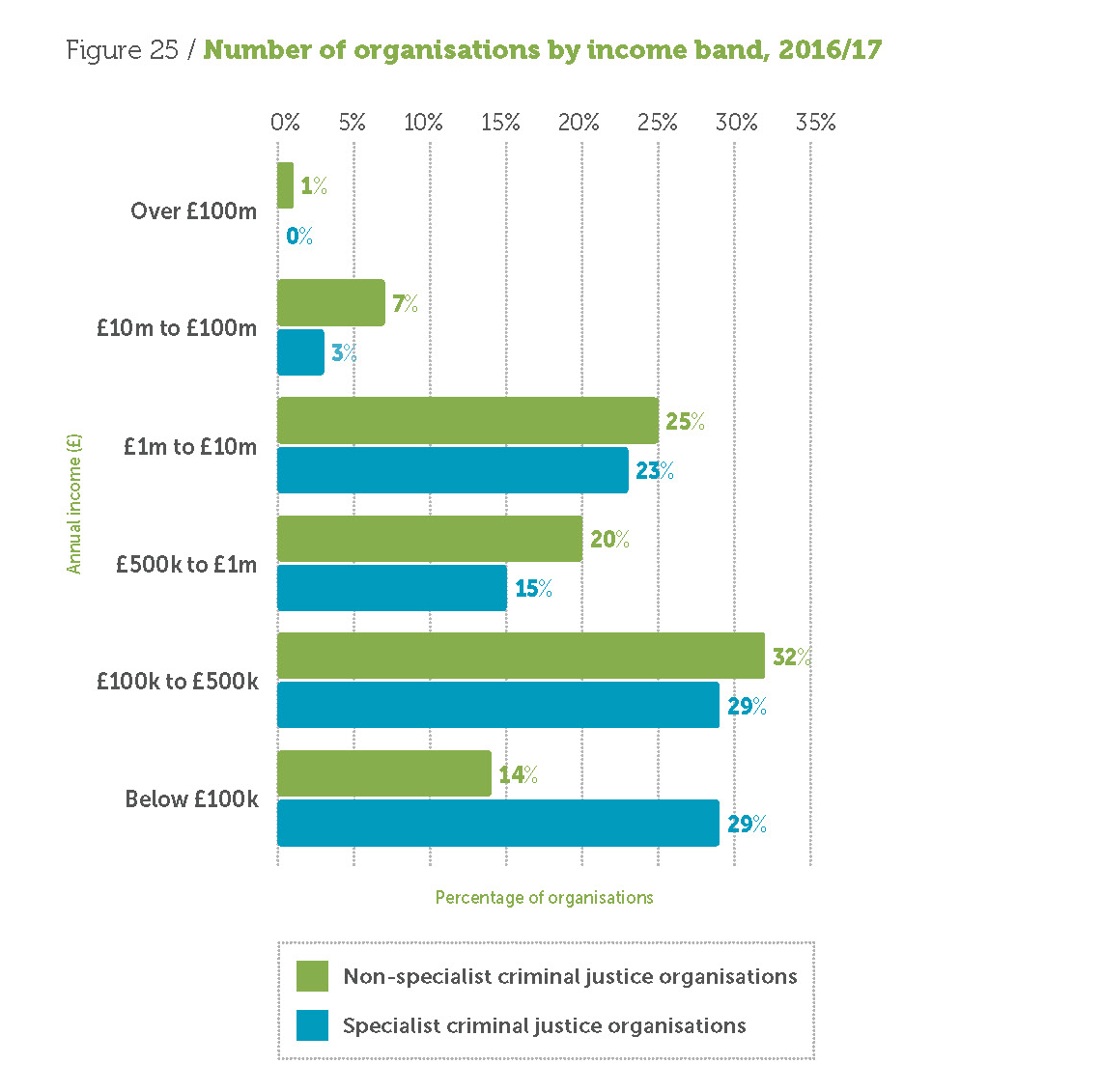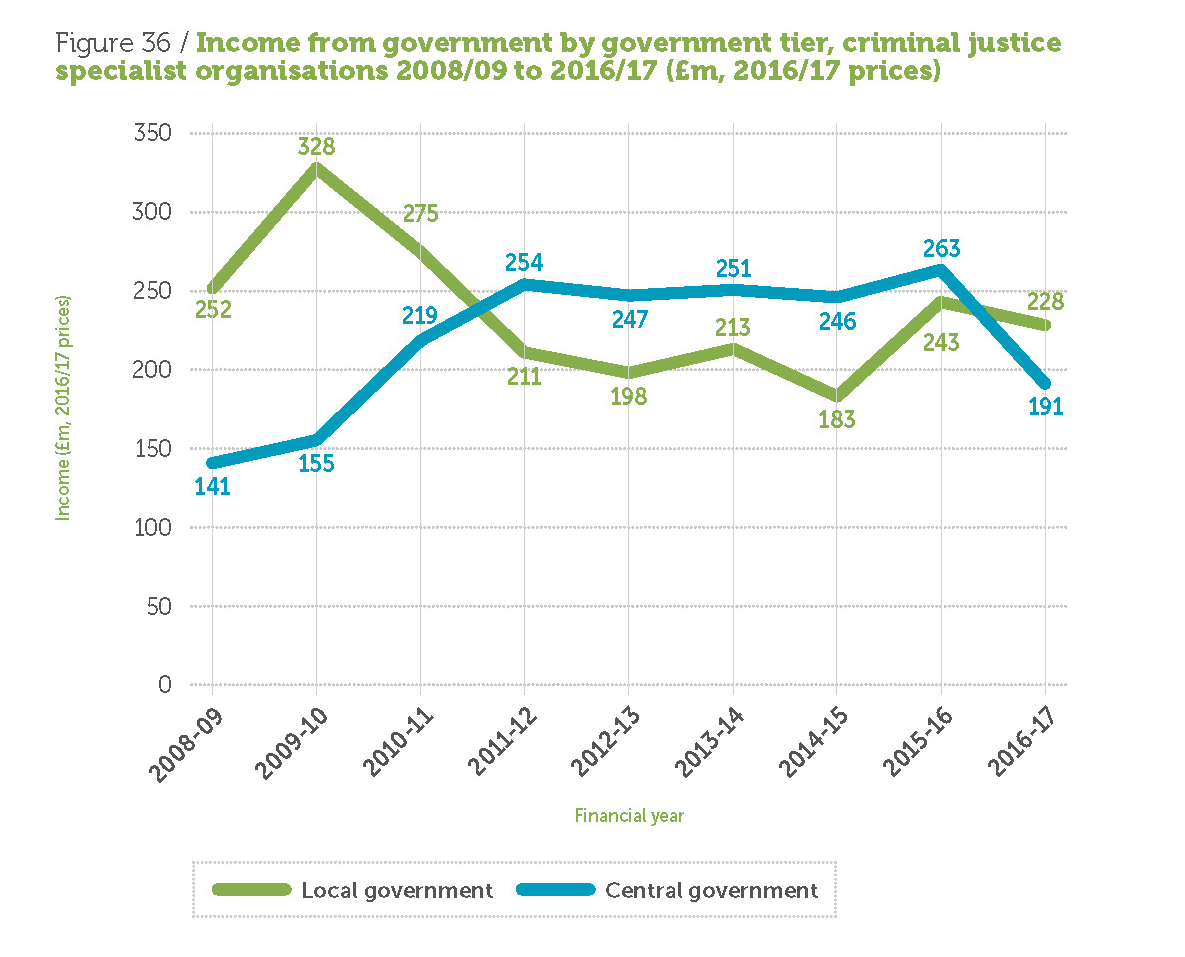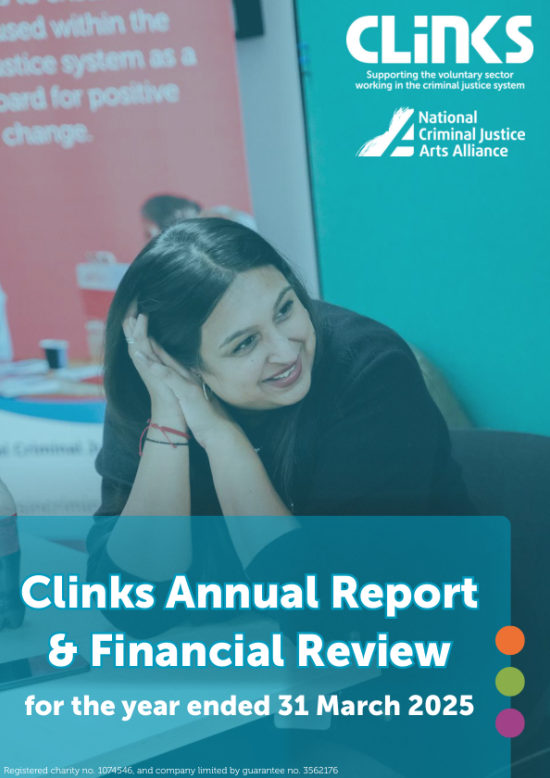Each year Clinks publishes research on the voluntary sector working in criminal justice that paints an in-depth picture of the successes and challenges organisations in this sector are experiencing.
The state of the sector report we produce from the research is a vital source of evidence in advocating for the sector with key decision makers and funders. To help our members digest the findings we have been doing a series of blogs which takes a closer look at the key findings of each section of the report. These include: service users; service delivery; staff and volunteers; and funding.
This blog will take a closer look at what we found out about funding for this unique sector.
Falling grants and contract struggles
The following focuses on findings are from an analysis conducted by NCVO of over 1,400 financial accounts submitted to the Charity Commission from the financial year 2016/17.
To represent the diversity of experience within the sector we split organisations in our financial analysis into two:
- Specialist criminal justice organisations - voluntary organisations whose primary purpose is related to criminal justice
- Non-specialist criminal justice organisations – organisations who support people with convictions but their main purpose is not working in criminal justice.
At Clinks we champion the fact that much of this sector is made up of small, specialist organisations rooted in local communities. Our findings continue to support this, showing that the specialist criminal justice sector has a higher proportion of smaller organisations than non-criminal justice specialists. For example, 29% of specialist criminal justice organisations have an annual income below £100k compared to 14% of non-specialist criminal justice organisations.

The smaller organisations are, the more dependent they are on grant funding from charitable trusts and foundations. Small, specialist criminal justice organisations are also more reliant on government grants than contracts. So it’s really concerning that we found overall grant funding for specialist criminal justice organisations has fallen by 17% over a nine year period, reducing the availability of such a vital source of income for a lot of the sector.
We also continue to find in our surveys that organisations delivering under contract or sub-contract are struggling to achieve full cost recovery. The majority of respondents who did not achieve full cost recovery said they had to subsidise the shortfall using their own reserves (61%) and/or other funding sources (63%) and a significant proportion (35%) had to reduce overhead costs including staff.
This is an unsustainable situation and particularly concerning for specialist criminal justice organisations. One way we can determine this is through looking at organisations reserves, which gives an indication of an organisation’s vulnerability to external shocks. For specialist criminal justice organisations, the data shows that on average, they have a far lower reserve level = at just 1.4 months - than the wider UK voluntary sector which holds an average 6.3 months of reserves.
Changes in government funding
Government makes up the largest source of income for specialist criminal justice organisations but in the financial year 2015/16 – 2016/17 this major income source dropped significantly by 17%. Interestingly there was also a shift in the way this statutory funding was received. For the first time since 2010/11 specialist criminal justice organisations received more funding from local government than central government. This might seem a surprising finding given the significant funding cuts that local authorities have experienced, but it reflects a steeper decline in central government funding as opposed to an increase in local authority funding.

How organisations are responding
These findings paint a concerning picture but we are also seeing a new trend emerge in response. As grant funding decreases we are seeing a corresponding increase in the earned income of specialist criminal justice organisations (by 22% over nine years). The financial analysis showed that specialist criminal justice organisations have increased the proportion of income brought in through fees for service. This is income earned through providing charitable services such as tuition fees for training or selling equipment.
This indicates that organisations are adapting their services, which could involve expanding their work to include a social enterprise element. This in some sense is a positive story. It shows how flexible organisations can be and that they are diversifying their income sources to keep on surviving. But we also have some residual concerns that organisations are being pushed into commercial models or services that may not be right for their organisation in order to survive. The knock on impact of this can potentially risk diluting organisations charitable aims and objectives.
Fundraising challenges
Readers that work in the voluntary sector in criminal justice will be acutely aware of the challenges organisations face in relation to fundraising. As the availability of grant funding decreases, it increases competition in the sector, as organisations are likely to submit bids for the same pot of money. We also know that there is an added challenge that this sector faces in fundraising from the general public, as people are often not inclined to give donations to support those in contact with the criminal justice system.
In our research we also look at the fundraising ratio of organisations. This is a measure of the income generated for every pound spent on generating funds and we found that specialist criminal justice organisations have a much higher fundraising ratio than non-specialist criminal justice organisations. This would suggest that criminal justice specialist organisations are more efficient with the funds they generate which is, perhaps a reflection of the challenging financial environment they are operating in.
What next?
If you have any questions about the issues raised in this blog please contact Lauren Nickolls, Policy Officer, at lauren.nickolls@clinks.org. We will continue to use the findings of our state of the sector research to inform our priorities and the support we provide the sector.
Look out for our 2020 state of the sector survey which will be launching soon. This will help us to keep building up a robust evidence base on the needs and experiences of the voluntary sector in criminal justice and the people it works to support.
What's new
Blogs
Anne Fox CEO of Clinks to stand down after a decade of service
Latest on X
The role is for a leader from an organisation focused on racially minoritised people, with expertise in service delivery, policy, advocacy, or related areas in criminal justice. Racial disparities are present at every CJS stage. This role ensures these voices are central in shaping policy to help address and eradicate them. Apply by Mon 18 Nov, 10am. More info: https://www.clinks.org/voluntary-community-sector/vacancies/15566 #CriminalJustice #RR3 #RacialEquity

